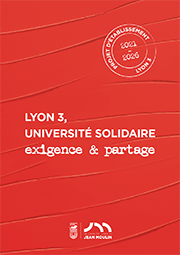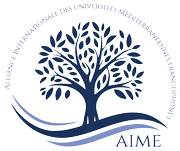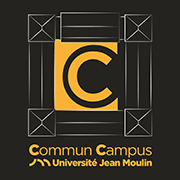AccueilRechercheProgrammes et productions scientifiquesThèsesThèses soutenuesThèses soutenues - 2024
-
Partager cette page
- Recherche,
- Droit,
TA? PAMART Barthélemy
Les préjudices extrapatrimoniaux hors de la nomenclature Dintilhac : étude comparée des droits fran?ais et anglais
Publié le 26 ao?t 2024 – Mis à jour le 26 ao?t 2024
Thèse en Droit, soutenue le 6 mars 2024.
La thèse porte sur les préjudices extrapatrimoniaux apparus en droit fran?ais postérieurement à l’établissement de la nomenclature Dintilhac en 2005 et sur les concepts mobilisés par le droit anglais dans les mêmes circonstances. Elle vise à démontrer avec l’appui du droit anglais que les préjudices hors de la nomenclature Dintilhac ont dans leur grande majorité vocation à offrir au demandeur une indemnisation dans les cas où la société estime que celui-ci a subi une interférence contrevenant à un droit jugé légitime, et non à réparer la détérioration d’une situation de fait. Ces préjudices sont la réponse du droit fran?ais à l’expression de nouveaux besoins d’indemnisation. Ils ont la particularité de ne pas s’inscrire dans une approche classique de la responsabilité civile, ce qui explique la réticence du droit anglais à adopter ces solutions. L’analyse thématique des différents préjudices hors de la nomenclature Dintilhac et de leurs équivalents anglais permet de montrer que les deux droits ont adoptés des solutions très différentes aux besoins exprimés. Le droit anglais s’est concentré sur la seule indemnisation du traumatisme psychique tandis que le droit fran?ais indemnise tous les préjudices moraux et les assortis généralement de modalités d’indemnisation avantageuses. L’intérêt de cette thèse est double. D’abord, il est de proposer une définition plus précise du dommage dans les deux droits. Celui-ci est con?u par les deux systèmes soit comme la détérioration d’une situation de fait, soit comme une interférence abstraite avec un intérêt légitime. Ensuite, cette démonstration permet de clarifier le sens donné à l’indemnisation dans les deux systèmes, et de mettre en lumière une potentielle convergence conceptuelle des droits fran?ais et anglais. L’étude ouvre ainsi la voie à une approche plus rationnelle de ces nouvelles demandes d’indemnisation.
Mots-clés : Responsabilité civile ; Droit comparé ; Préjudices ; Préjudices extrapatrimoniaux ; Dommage ; Dommage corporel ; Détérioration ; Atteinte à un droit ; Fonction recognitive
This dissertation is about the new heads of special damages that have appeared in French law since the creation of the Dintilhac classification in 2005 and about the concepts that English law uses in the same kind of circumstances. The goal of this dissertation is to demonstrate with the support of English law that, in French law, the majority of those heads of damages aim to indemnify a plaintiff in cases where society thinks the interference he suffered contravenes an interest that is deemed legitimate, and not aimed at repairing a loss. Those heads of damages are the answer of French law to the expression of new needs for compensation. They have the specificity to be outside of an orthodox approach of tort law, which explains why English law is reluctant to adopt those solutions. A thematic analysis of the different heads of damages outside the Dintilhac classification and of their English equivalents leads us to show that the two systems have chosen very different solutions to the expressed needs. English law has focused on the sole compensation of psychiatric trauma while French law compensates all moral harms and generally tend to give them favorable regimes. The interest of this dissertation is dual. First, it is to put forward a more precise definition of the notion of damage in both regimes. Damage is understood by both systems either as a loss, i.e. the concept of being factually worse-off, or as an abstract interference with a legitimate interest. Second, the demonstration allows for a clarification of the meaning that is given to liability in both systems, and highlight a potential conceptual convergence between French and English law. This study paves the way for a more rational approach to those new needs for compensation.
Keywords: Tort law ; Comparative law ; Heads of damages ; General damages ; Damage ; Personal injury ; Loss ; Interference ; Vindication
Directeur de thèse : Barthelemy TAY-PAMART
Membres du jury :
- M. GOUT Olivier, Directeur de thèse, Professeur des universités, Université Jean Moulin Lyon 3,
- M. KNETSCH Jonas, Rapporteur, Professeur des universités, Université Paris 1 Panthéon Sorbonne,
- M. TAYLOR Simon, Rapporteur, Professeur des Universités, Université Paris Nanterre,
- Mme HOCQUET-BERG Sophie, Professeure des universités, Université de Lorraine, Nancy,
- Mme PORCHY-SIMON Stéphanie, Professeure des universités, Université Jean Moulin Lyon 3.
- M. KNETSCH Jonas, Rapporteur, Professeur des universités, Université Paris 1 Panthéon Sorbonne,
- M. TAYLOR Simon, Rapporteur, Professeur des Universités, Université Paris Nanterre,
- Mme HOCQUET-BERG Sophie, Professeure des universités, Université de Lorraine, Nancy,
- Mme PORCHY-SIMON Stéphanie, Professeure des universités, Université Jean Moulin Lyon 3.
Présidente du jury : Stéphanie PORCHY-SIMON
Documentation
Mise à jour : 26 ao?t 2024







